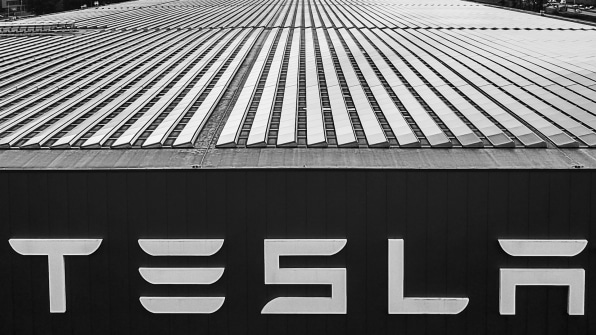Tesla Not Getting Back to Me About an Interview
I've been thinking a lot about a small quasi-interaction I had this week, and it's nagged me enough to write it down. It all started when I decided to write a short post about a pseudonymous financial writer who didn't much care for Tesla. This person, dubbed Montana Skeptic–who was not a troll–irked Elon Musk to the point that the Tesla founder figured out the writer's identity and contacted his employer. Montana Skeptic has since taken his Twitter account down and announced he is no longer writing about the company.
This was an instance of a rich, thin-skinned billionaire wielding his power, a phenomenon that appears to be more commonplace these days. All the same, it's still jarring. Why did Musk target this Tesla critic? There are numerous others–many of whom post their actual names online. But when I contacted Tesla for comment, its response was even stranger. A normal reply from a public company would be to either A) decline comment or B) confirm the action in some way but try to deemphasize what happened.
Tesla did something different. Instead, it named the pseudonymous writer by name–something I deliberately did not do in my piece. It also named Skeptic's employer, provided its number, and asked me to call them. In essence, the $50 billion company wanted me to harass someone who dared criticize it. It would be weird, yet unsurprising if this dictate came directly from Musk. But the message came from Tesla PR. In the post, I didn't publish the comment because it felt so petty.
While it could be argued that this Skeptic's name is now newsworthy, it's important to think about why it became so. The word "doxx" has become quite a bit overused of late, but this is an interesting case of it. He wasn't trolling or harassing anyone–Montana Skeptic was simply writing analysis about why he thought Tesla's stock wasn't worth the hype. There are countless other blogs and online characters who have written under pseudonyms that people are happy to read and share and not out the author's identity. So it seems reasonable that, if Skeptic wants to remain anonymous, we should let him do that.
Yet Musk went the other way, figuring out his real name and place of employment. And his team took it a step further by promulgating this to the press. Though the company may be hiding behind the fact that it's possible to go online and figure out Skeptic's identity already, that still doesn't make its official response okay. What's more, Tesla did this even after he capitulated and said he'd stop writing about the company, which makes the whole incident even uglier.

Embroiled, Emboldened, and Enabled
I've spent the last day stewing over this bizarre interaction. Over the last few months, Musk has been embroiled in a series of Twitter kerfuffles. They usually go thus: Someone–often a completely unknown person–questions his actions, and Musk lashes out. When people questioned his ludicrous mini-submarine to save the children in the underground Thai caves, Musk, in a tweet, called the lead rescuer a pedophile. When the media questioned his business's tactics, he resorted to schoolroom name-calling. Over the last year, Musk has proven to be a hotheaded mess.
But it's not just him–his company follows suit. In this latest interaction, a group of supposed public relations officials thought it wise to go after an individual man who wrote financial analysis. The company thought it important to not only name this person, but to tell me that his boss was a Tesla supporter. Who cares? And more importantly, why do this?
Tesla used a similar tactic when it (not Musk, but the company's press team) described a report from the nonprofit journalist organization Reveal as an "ideologically motivated attack by an extremist organization." All of these moves are extreme and reactionary. They show a brazen need to get the last and loudest word in.
I'm not sure if I have a larger point to reach, other than to say that something is wrong. Erratic behavior is becoming the norm everywhere we turn–in politics, at home. And now in business. It brings up a question of complicity and values. It's one thing to have a volatile leader, it's another thing to emulate his actions as a matter of company strategy.
In 2018, it's now commonplace to see millionaires and billionaires act out as if they were victims of an oppressive system, expecting to get away with anything. "I could stand in the middle of Fifth Avenue and shoot somebody, and I wouldn't lose any voters," said Donald Trump, only a few years ago. And his administration and fellow party members followed suit with this reckless rhetoric and action–leading many onlookers to question their complicity.
Now entire organizations are following this disturbing brand of marching orders. First, it starts at the top, and then it trickles down. In the case of Tesla, you would hope that someone on Musk's press team would stop and say, "Hey, is what we're doing okay? Maybe this isn't a good idea." Instead, they barrel on.
Which is all to say that even though these sorts of reactions are becoming more commonplace, they aren't normal. And we shouldn't allow them to be.
Tesla Not Getting Back to Me About an Interview
Source: https://www.fastcompany.com/90209147/tesla-is-not-normal
0 Response to "Tesla Not Getting Back to Me About an Interview"
Post a Comment